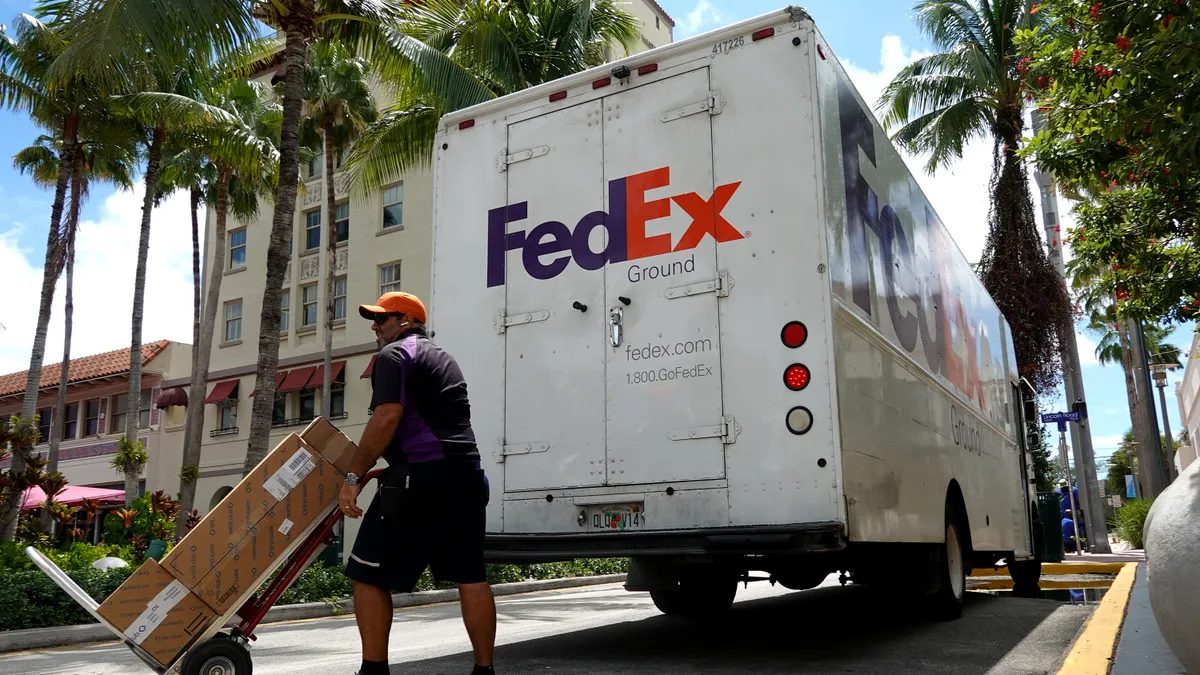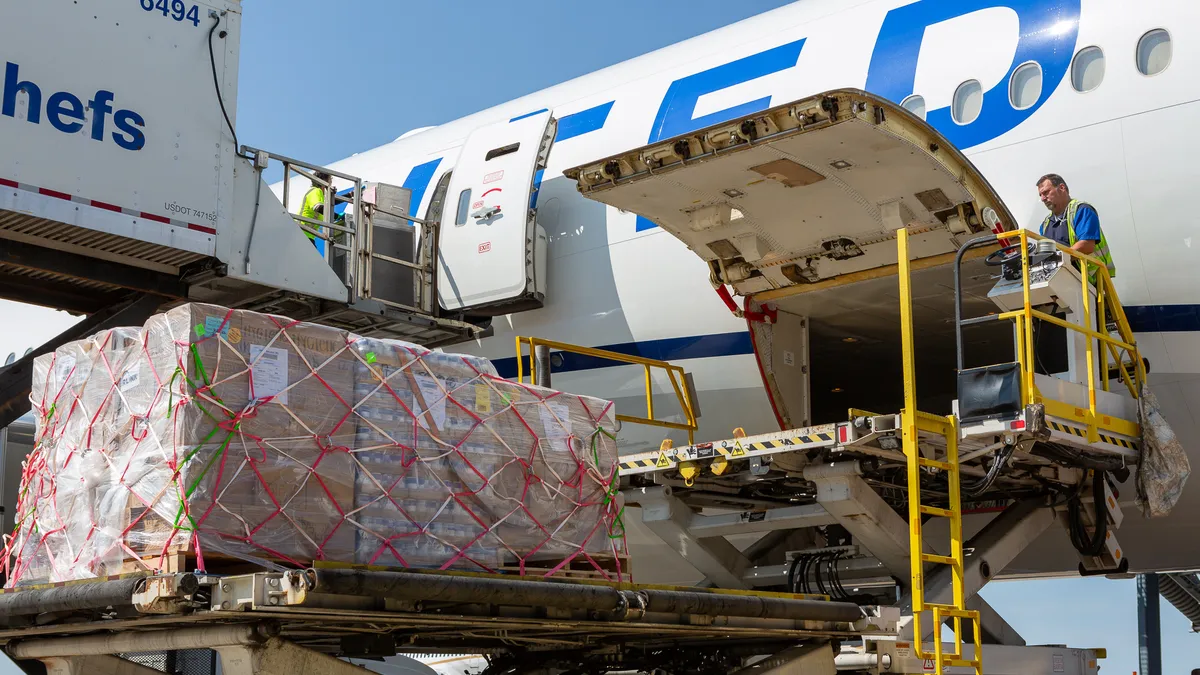Dive Brief:
- FedEx is planning to change how dimensional weights are calculated for packages next month, a move that could place further pricing pressure on some shipments.
- For measuring dimensional weight, any fraction of an inch or centimeter will round up to the next inch or centimeter starting Aug. 18, per FedEx's website. Currently, dimensions of less than one-half inch are rounded down.
- “This change aligns with the rounding logic FedEx currently applies for weight measurements for greater consistency between dimension and weight measurements,” FedEx said in an emailed statement to Supply Chain Dive.
Dive Insight:
A FedEx package's chargeable weight can be the greater of its actual weight or dimensional weight, so the tweak could increase shipping costs, according to experts. It may also result in more packages meeting the threshold for extra surcharges, including the additional handling surcharge and the ground unauthorized package charge.
Shippers often adjust their packaging to fit below the threshold of surcharges for bulky shipments, said Thomas Andersen, partner and EVP of supply chain services at LJM Group. FedEx's upcoming adjustment may push them to make additional adjustments.
"When everything rounds up, all that effort may go sort of out the door," Andersen said in an interview, adding that affected customers will have to find ways to slim their package dimensions further.
FedEx also plans to increase its U.S. inbound processing fee from $1.50 to $2.50 on Aug. 18. The charge is assessed on imports into the country on either a per shipment or per package basis, depending on the service.
FedEx's planned tweaks are among several price adjustments parcel shippers are navigating in 2025, including for bulkier shipments. UPS plans to change how large package and additional handling fees are calculated on Aug. 17, with those surcharges considering a package's cubic inch total rather than length and girth.
The barrage of new surcharges and fee changes have contributed to elevated ground shipping rates this year, according to the TD Cowen/AFS Freight Index. Some shippers are shifting volume to slower-but-cheaper services to blunt the impact of cost pressures.













